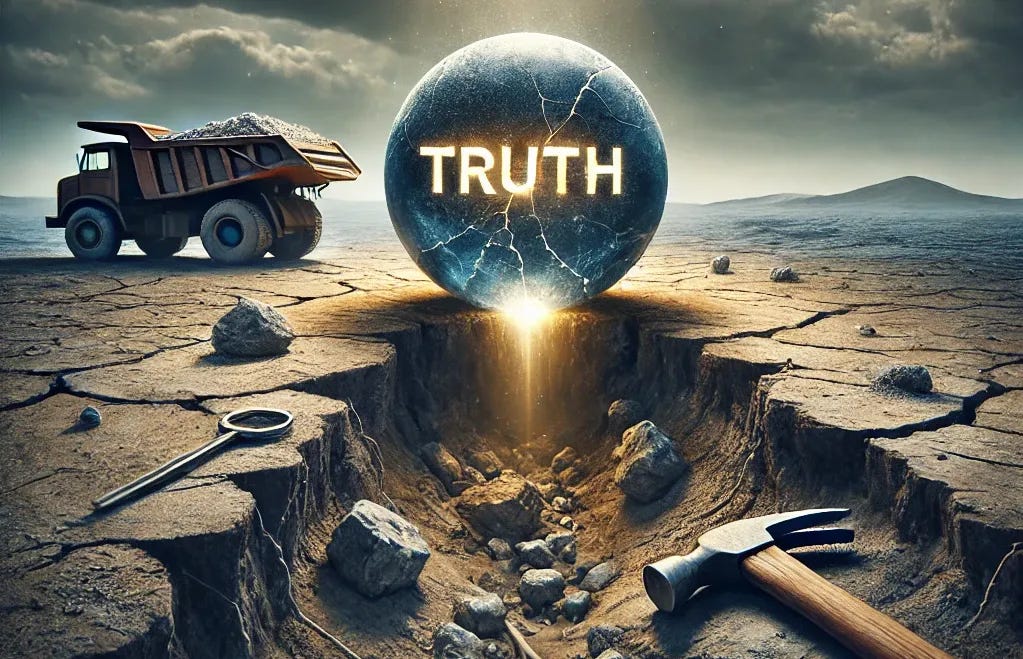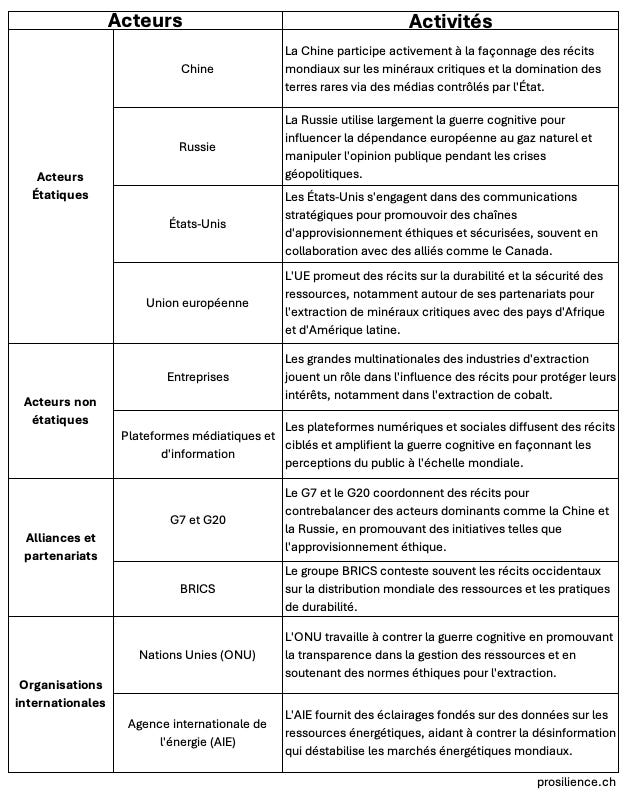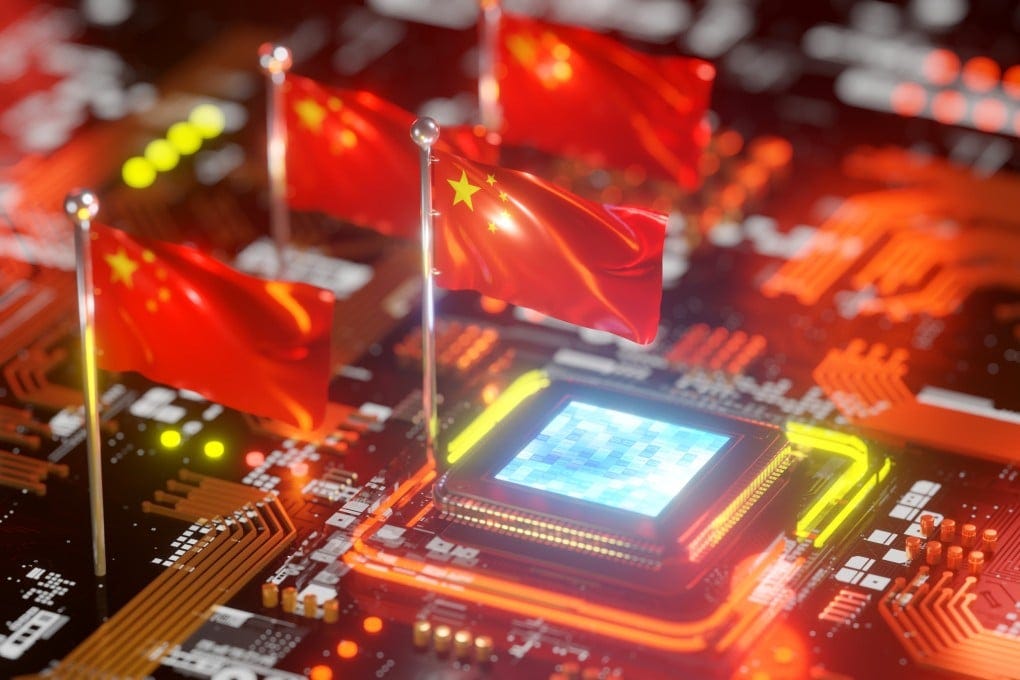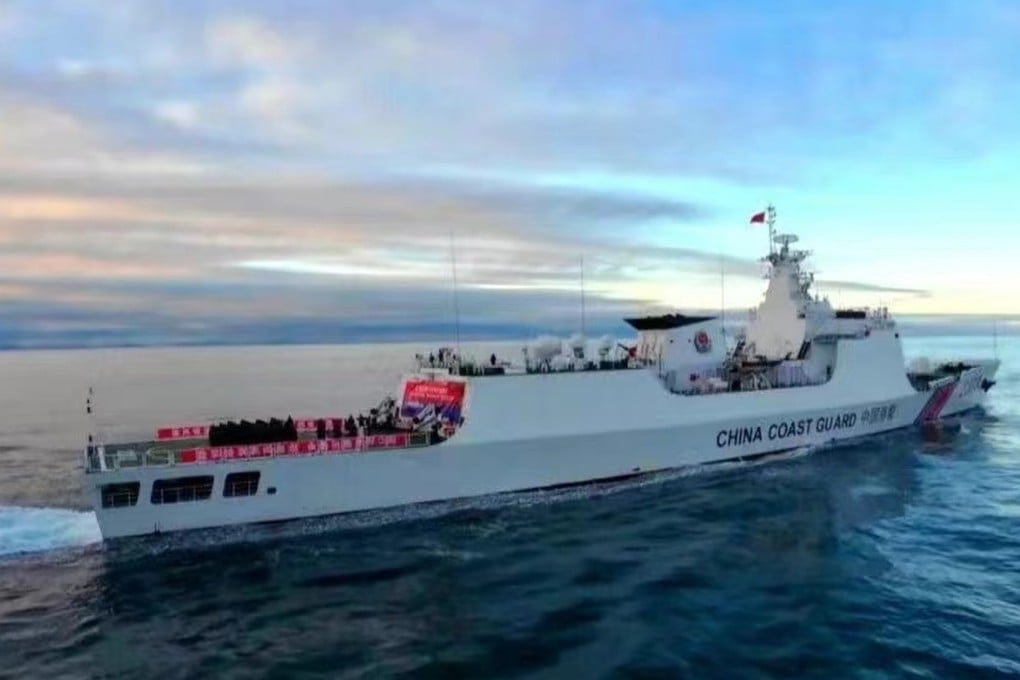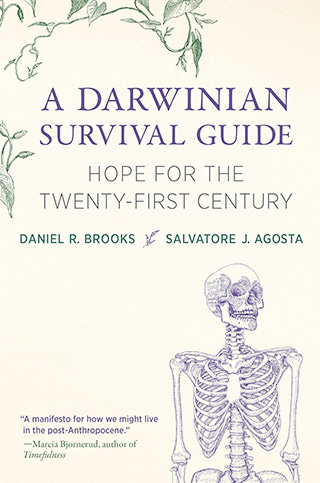thinkletter #57 - #polycrisis #truth #discernment #tensions #bromance sino-russian #photonics #chaoswheat #collapse #hydroelectricity #wisdomcorner
October 17, 2024 - “You have power over your mind - not over external events. Become aware of this, and you will find strength.”
Boost your cognitive immunity!
Prosilience thinkletter #57
A bimonthly thinkletter to help you better understand and anticipate the global polycrisis, so you can adapt. Compiled by Christopher H. CORDEY, futurist-maieutician, strategic facilitator, speaker, founder of futuratinow. Partner, Yonders. Board member of Swissfuture.
Thinkletter #57 - October 17, 2024
What if cognitive warfare redefined the value of resources?
Welcome to an era where it's no longer the resources themselves that hold the power, but the idea we have of them. An era where scarcity is no longer just a physical reality, but a mental construct shaped by narratives, strategies and subtle manipulations. The cognitive war for resources is not being waged (solely) in mines, wells or laboratories, but in our minds.
Today, the war for control of resources is waged through perceptions, images and narratives. The nations that hold the critical minerals - cobalt, lithium, nickel, manganese, graphite, copper, REE (Rare Earth Elements) - have understood that controlling the narrative is just as strategic as controlling the raw material. If water becomes scarce, if minerals are depleted, or if energy becomes scarce, is this really the case? Or is it a story we're being told to influence our economic, political and social behavior?
Digital platforms, the engines of this new invisible war, are spreading amplified stories about shortages, crises and climate issues. Every X (ex-tweet), every Instagram post, every article subtly manipulates reality, forming collective perceptions that influence global markets and diplomatic strategies. We are witnessing a geopolitical game in which material reality is but a pawn on the chessboard of global perceptions.
But behind this cognitive war lurks a greater danger: that of no longer being able to distinguish truth from myth, real scarcity from exaggeration. When China, the United States or the European Union shape their own version of reality around critical resources, how do we know where the truth lies? Perhaps it's time to recognize that the war over resources, but not only, is being waged first and foremost in our minds, and that tomorrow's real critical resource will be our ability to discern the truth in a world saturated with narratives shaped by (more or less) hidden interests.
Discernment: a critical resource in short supply ?
Starting today, our thinkletter will be exclusively in english and feature various sections:
The Deep Dive – A analysis into an emerging topic or phenomena.
The Strategic Pulse – Tracking key emerging trends, risks, opportunities, and uncertainties.
The Explorimentator – Three provocative questions designed to challenge the status quo.
The Wisdom Corner – A thoughtful quote from a Stoic philosopher.
In this thinkletter subscribers will find in-depth analysis of cognitive warfare and resource security, as well as the return of hydroelectricity, imminent collapse, chaos wheat, the Sino-Russian bromance in the Arctic, the war on chips, and the rotation of our planet. Already a subscriber?
Enjoy the journey.
With best regards.
PS : not to be missed (click below)
The Deep Dive
Cognitive warfare and resource security: or how and why shape perceptions in a competitive landscape?
Cognitive warfare represents a new frontier in geopolitical competition, where the battle is fought not only for resources, but also for influence over how these resources are perceived and valued. In the context of resource security, cognitive warfare involves shaping public perceptions, international narratives and political discourse to gain a strategic advantage over rivals. This approach uses media, propaganda and digital platforms to influence the way societies understand and react to issues of resource availability, scarcity and control.
Shaping narratives.
Resource security, especially concerning critical minerals, water, and energy, is increasingly influenced by cognitive warfare. By controlling narratives around resource scarcity, countries can manipulate market dynamics, diplomatic relations, and public opinion, using tactics such as exaggerating scarcity to undermine rivals. This is evident in the energy sector, where disinformation campaigns have been used to manipulate markets and create divisions between consuming nations.
The rise of digital platforms, particularly social media, has amplified these tactics, turning them into a battleground for shaping perceptions of resource security. Both state and non-state actors exploit these channels to spread misinformation, destabilize markets, and influence public trust, thereby exerting pressure on global alliances and policies.
Who are the key players?
The key players include state and non-state actors, alliances and partnerships, and international organizations. All have distinct agendas.
A few concrete examples
China's influence through information campaigns: China uses state-controlled media to promote its dominance of the rare earths market, highlighting the strategic vulnerability of Western countries dependent on Chinese supplies (Jones, 2022). https://www.usgs.gov/china-rare-earth-campaign.
The EU sustainable extraction narrative: The European Union is not only securing critical mineral supply chains through partnerships with Africa and Latin America, but is also promoting a sustainability narrative to counterbalance perceptions of exploitation (Smith, 2023). https://www.brookings.edu/eu-sustainable-minerals.
Disinformation around lithium mining in Chile: Contradictory reports on the environmental impact of lithium mining in Chile have sparked debate, with some accounts exaggerating the consequences to sway public opinion against foreign investment (Gonzalez & Ramirez, 2023). https://www.iea.org/lithium-chile-misinformation.
U.S.-Canadian efforts to counter Chinese influence: The U.S. and Canada are jointly promoting the narrative of secure, ethical sourcing of critical minerals, positioning themselves as reliable alternatives to Chinese-controlled supply chains (Thompson, 2023). https://www.cfr.org/us-canada-mineral-initiative.
Australia's strategic communications: Australia invests in public campaigns to highlight its role as a stable and ethical supplier of critical minerals, aiming to attract global investors and counter narratives of resource nationalism (Williams, 2023). https://www.iiss.org/australia-critical-minerals.
Human rights and media coverage in Congo: Reports of human rights abuses in the Democratic Republic of Congo's cobalt mines are amplified by various actors to draw attention to the ethical challenges of the energy transition, influencing consumer and investor behavior (Johnson, 2023). https://www.hrw.org/congo-cobalt-human-rights.
Recycling as a resilience narrative: Technological advances in recycling are promoted as a means of reducing dependence on the extraction of raw minerals, with countries such as Japan and Germany leading campaigns to highlight technological innovation and sustainability (Kobayashi & Mueller, 2023). https://www.brookings.edu/recycling-critical-minerals.
Exploration and India's national pride: India has launched an extensive media campaign to present its exploration of rare earth elements as a step towards self-sufficiency, aimed at fostering national pride and reducing dependence on imports (Patel, 2023). https://www.iiss.org/india-rare-earth-campaign.
The Strategic Pulse
Hydroelectricity explodes, while the seeds of climate chaos threaten global crops. China is not only dominating microchips and shifting the Earth's axis with its massive dams, it is also redefining world order. Meanwhile, local communities are trying to reinvent their survival away from obsolete systems of governance. From renewable energies to post-collapse survival strategies, humanity must now choose: persist in inertia or adapt. Adapt, Adapt, Adapt.
L'hydroélectricité est en plein essor dans le monde entier. Hydropower is experiencing significant growth worldwide, as countries seek to diversify their sources of renewable energy. The market, currently valued at $251.58 billion, is expected to reach $356.36 billion by 2031. China leads the way with the largest pumped hydro capacity, but other countries such as Sweden and Canada are developing their hydropower infrastructure. Small-scale, run-of-river projects are attracting attention, although the sector faces challenges such as droughts and financing difficulties. The reliability of hydropower makes it a key player in the world's renewable energy mix.
Le Blé du chaos : Better bread and a victory for the climate? Rising temperatures attributed to climate change are already affecting wheat production in the United States, one of the world's leading wheat exporters. Lower production could have a global impact. However, some scientists and farmers are working on a solution that would not only create “tastier bread”... but also preserve soils from depletion and survive the increasing frequency of extreme weather events. Chaos wheat” (Syngenta, BASF) is the concept of using genetically diversified wheat varieties to create crops that are more resistant to climate change. What are the health, environmental, economic and social consequences?
Guerre des puces : China has announced a breakthrough in silicon photonics, achieved by a semiconductor laboratory in Wuhan, which could overcome current technical obstacles in microchip design. This development, described as an “important milestone”, could help China achieve self-sufficiency in chip manufacturing, particularly in the face of US sanctions. The JFS laboratory (Wuhan) has succeeded in integrating a laser light source on a silicon-based chip, a first in China. This achievement means that China has closed “one of the few gaps” in its optoelectronics technology, the state-run People's Daily reported on Friday. The chip war continues. To be continued...
Bromance sino-russe en Arctique. What does China's first Arctic coastguard patrol with Russia reveal about China's ambitions? According to analysts, this mission reflects Beijing's position that non-Arctic countries “have the right to conduct civilian operations” (...) in the Arctic. This deployment demonstrates not only China's ability to operate far from its shores, but also a strengthening of its cooperation with Moscow. The patrol, carried out on September 30, 2024, coincided with the 75th anniversary celebrations of the People's Republic of China. 2049 ... that's 25 years from now.
L'effondrement est (-il) imminent (?) Can humanity adapt? When two experts walk into a bar... and ponder survival. Evolutionary biologist Daniel Brooks and science fiction writer Peter Watts point out that humanity's current behavior, focused on short-term gains, is unsustainable. They argue that technological solutions alone will not save us; rather, humanity must adapt by changing its behavior. They explore survival strategies for “technologically dependent societies” and advocate local, decentralized action as a Darwinian response to environmental stressors, rather than relying on failing systems of governance.
Un barrage chinois pourrait déplacer l'axe de la terre. China's Three Gorges Dam, an engineering marvel on the Yangtze River, has subtly influenced the Earth's rotation and axis, illustrating man's impact on planetary systems. Containing up to 39.3 billion cubic metres of water, the dam increases the Earth's moment of inertia, lengthening the day by 0.06 microseconds and shifting the axis by around 80 centimetres to the east, while highlighting the wider implications of human activities in relation to natural events such as earthquakes and tsunamis. Psyop ?
The Explorimentator
In what ways could cognitive warfare tactics reshape geopolitical dynamics around critical minerals?
As hybrid wheat aims to increase the resilience of food production, how can we avoid the potential risks of over-reliance on a few global agro-industrial giants, such as BASF (Germany) and Syngenta (China)?
At a time when water scarcity is becoming a key constraint (agriculture, mineral extraction), how can we mitigate the environmental and social conflicts linked to competing demands for water?
The Wisdom Corner
“You have power over your mind - not over external events. Become aware of this, and you will find strength.” - Marc Aurèle

